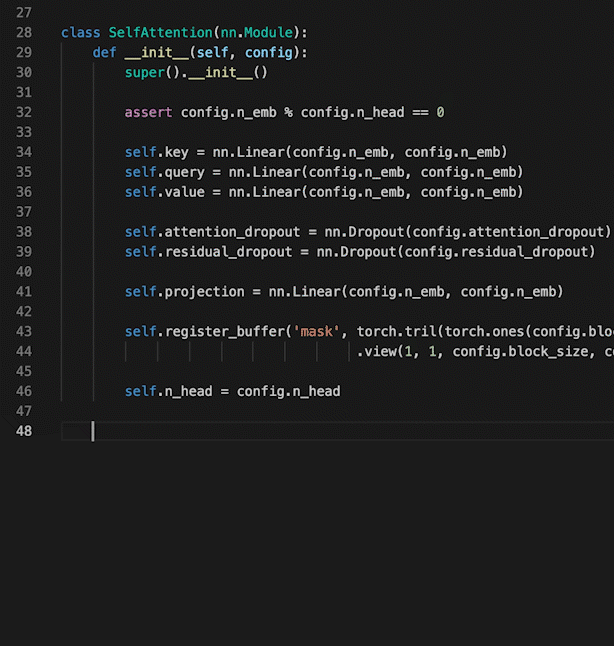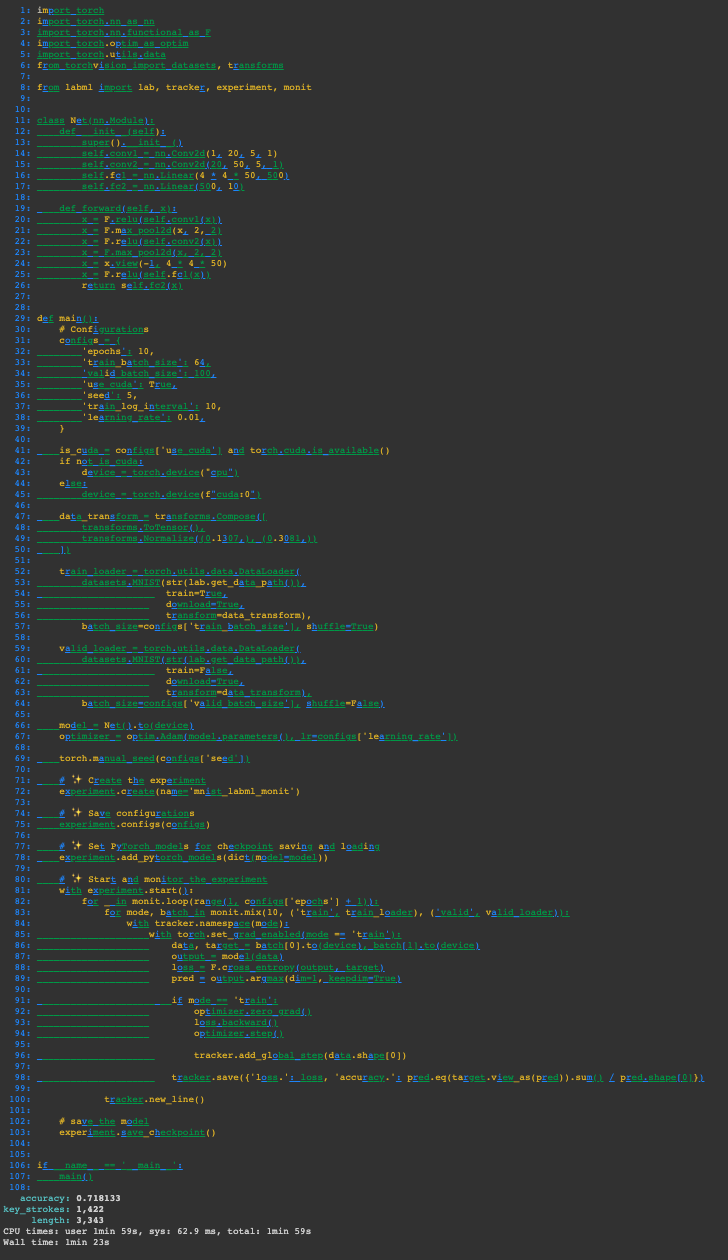lab-ml / Python_autocomplete
Projects that are alternatives of or similar to Python autocomplete
Python Autocomplete
The full length Python autocompletion Video and a Twitter thread describing how it works
This is a learning/demo project to show how deep learning can be used to auto complete Python code. You can experiment with LSTM and Transformer models. We also have built a simple VSCode extension to try out the trained models.
It gives quite decent results by saving above 30% key strokes in most files, and close to 50% in some. We calculated key strokes saved by making a single (best) prediction and selecting it with a single key.
The dataset we use is the python code found in repos linked in Awesome-pytorch-list. We download all the repositories as zip files, extract them, remove non python files and split them randomly to build training and validation datasets.
We train a character level model without any tokenization of the source code, since it's the simplest.
Try it yourself
- Clone this repo
- Install requirements from
requirements.txt - Run
python_autocomplete/create_dataset.py.- It collects repos mentioned in PyTorch awesome list
- Downloads the zip files of the repos
- Extract the zips
- Remove non python files
- Collect all python code to
data/train.pyand,data/eval.py
- Run
python_autocomplete/train.pyto train the model. Try changing hyper-parameters like model dimensions and number of layers. - Run
evaluate.pyto evaluate the model.
You can also run the training notebook on Google Colab.
VSCode extension
-
Clone this repo
-
Install requirements from
requirements.txt -
Install npm packages
You need to have Node.JS installed
cd vscode_extension
npm install # This will install the NPM packages
-
Start the server
python_autocomplete/serve.py -
Open the extension project (folder) in VSCode
cd vscode_extension
code . # This will open vscode_extension in VSCode
If you don't have VSCode command line launcher
start VSCode and open the project with File > Open
- Run the extension from VSCode
Run > Start Debugging
This will open another VSCode editor window, with the extension
- Create or open a python file and start editing!
Sample
Here's a sample evaluation of a trained transformer model.
Colors:
- yellow: the token predicted is wrong and the user needs to type that character.
- blue: the token predicted is correct and the user selects it with a special key press, such as TAB or ENTER.
- green: autocompleted characters based on the prediction




